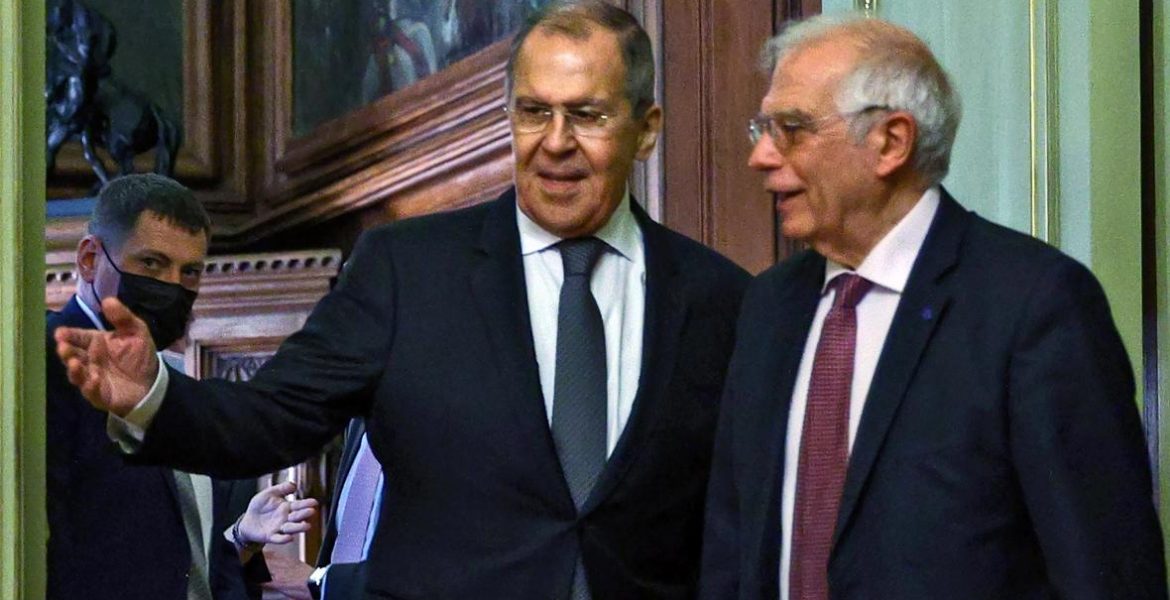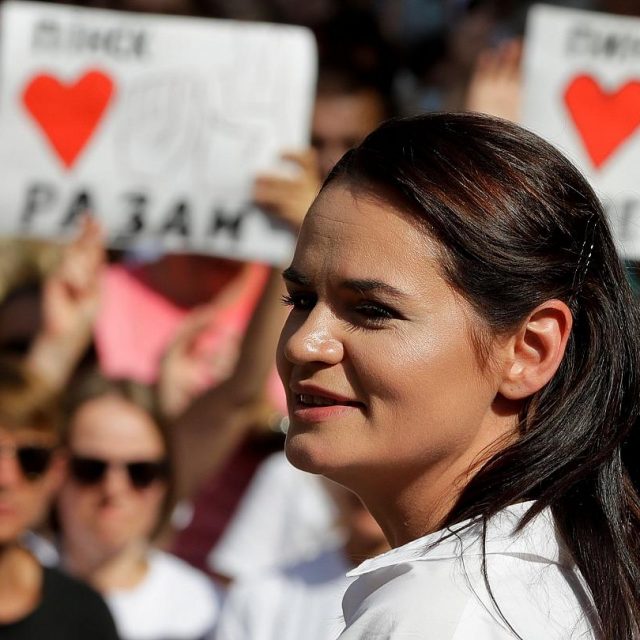The visit of Josep Borrell to Moscow should not have taken place, say many MEPs, who also criticise the Council for failing to respond to Russia’s aggressive policies.
In a debate on Tuesday afternoon with EU Foreign Policy Chief Josep Borrell on the current situation in Russia, some MEPs defended the purpose of his visit, whilst many condemned the Moscow trip.
They stressed that it did not come at a good time, due to the protracted deterioration in EU-Russia relations, with continued Russian aggression in Ukraine, the crackdown on protesters, EU diplomats expelled from the country, assassination attempts by the country’s intelligence services and the imprisonment of opposition leader Alexei Navalny.
Borrell said in his opening statement that he went to Moscow to see, through principled diplomacy, whether the Russian government was interested in addressing differences and reversing the negative developments in EU-Russia relations. The reaction he received points in a different direction, he added.
Many members underlined that the Russian government is not interested in reversing the negative trend in EU-Russia relations, as long as the European Union keeps raising issues related to human rights and rule of law. They also strongly criticised the behaviour and attitude of Russian Foreign Minister Sergey Lavrov towards the EU and Josep Borrell during their meetings and press conference, which served to undermine the EU.
Members also pointed to the failure of EU member states in the Council to put in place more and stronger actions against Russia, including further sanctions. Some denounced certain EU capitals for not responding appropriately to the deterioration of EU-Russia relations, for instance by stopping the Nord Stream II pipeline.
The Renew Europe Group in the European Parliament strongly criticised HR/VP Josep Borrell for visiting Moscow, despite its repeated calls for not going to Russia without the necessary tools to persuade President Putin to release Alexei Navalny.
Speaking during today’s plenary debate on the HR/VP Josep Borrell’s recent ill-fated trip to Moscow, the President of Renew Europe Group, Dacian Cioloş (USR PLUS, Romania), said: “The Renew Europe Group drew your attention to the fact that the wisest thing to do would be to postpone it, certainly if you do not have the power to take any action or put pressure on Russia to release Alexei Navalny from prison. Maintaining open diplomatic channels is important; we do not deny this, but an official visit to Russia, in such a tense context, is also a symbolic gesture. Unfortunately, your visit sent the wrong diplomatic signal; and it was a failed symbolic act that backfired.“
Cioloş continued: “Mr. Vice-President, you cannot say you did not know how sensitive such a visit was in these conditions. We have been trying for years to build a solid, influential and credible European diplomacy. This visit to Moscow and its consequences severely affected the Union’s credibility in terms of diplomatic influence. “
Russia expelled three European diplomats during the High Representative’s visit, showing once again that the Kremlin not interested in building a constructive relationship with Europe.
Renew Europe’s president added: “Now we have to face the consequences of your actions. There are lessons which must be learned, clearly.”
MEP Hilde Vautmans (OpenVld, Belgium), Renew Europe Group’s coordinator in the Foreign Affairs Committee, concluded: “The visit was a disaster which has undermined Borrell’s position and damaged EU foreign policy, EU-Russia relations are now even worse than before. We are now giving the HR/VP a yellow card and will remain vigilant.”
S&D vice-president responsible for foreign affairs, Kati Piri MEP, said:
“What has become absolutely clear is that there is no genuine interest in Moscow for a more constructive dialogue with the EU.”
“We should have no illusions: Moscow abused the visit of High Representative Borrell to humiliate and offend the EU. It was an act of insolence towards the whole of the EU, a project that Putin despises and wants to undermine. The EU can only counter the threats posed by Russia to our security by being united and firm. While Moscow tries to divide us.”
“What we need is a united strategy on Russia. That can only happen in the EU capitals. There can be no appeasement. This means that the Council will have to come up with clear and tough sanctions against Putin and his enablers. I believe HR Borrell has drawn the same conclusion.”
Tonino Picula MEP, the S&D spokesperson on foreign affairs, added:
“As we witnessed last week, Russia is not open to hearing the facts being raised directly, neither by their citizens, nor by foreign representatives. The poisoning, arrest and sentencing of Alexei Navalny, as well as the authorities’ violent repression of peaceful demonstrations in his support, must be addressed at the Foreign Affairs Council. They should finally make use of the new global human-rights sanctions regime and adopt additional, targeted sanctions, while continuing to look for options to better assist civil society organisations in Russia.”
“Global conflicts and urgent challenges require effective multilateral co-operation, eg: in the UN Security Council, and selective engagement even with those neighbours and international actors that defy the very principles of international co-operation, such as Russia. We are aware of it. That is why Europe needs a new smart and strategic approach towards Russia. While working on it, the EU should not keep falling into political traps further narrowing space for our political actions, but rather strengthen common foreign and security policy.”




